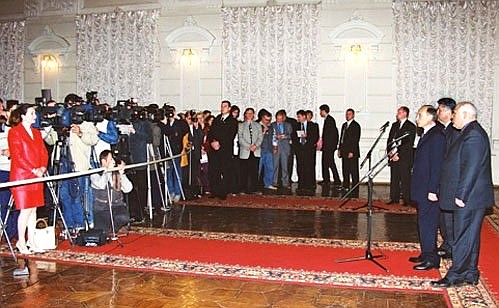
Loss of state control over the Caspian’s bio-resources was a manifestation of the state’s weakness, the President said. He underscored that poaching was a complicated problem that involved not only those who actually perpetrated the crime. The problem, he said, must be addressed across the board, cutting the activities of the masterminds and those connected with transportation.
In tackling other problems related to the Caspian Sea, Russia would be guided by bilateral agreements, the President said. He pointed to Moscow’s flexibility at negotiations to define the status of the Caspian and expressed his belief that at the first summit the “Caspian Five” had made good progress on all disputable issues.
The President confirmed that the summer exercise of the Caspian Flotilla would be military in nature. The region borders on Afghanistan, which is still the scene of hostilities; the Caspian is crossed by drug trafficking routes from Afghanistan to Russia and Western Europe; and, besides, there is Chechnya nearby, which aggravates the situation, he noted.
He named two goals of the exercise: to practice measures to block the routes likely to be used by terrorists and drug dealers, and to coordinate fleet efforts in sea-rescue operations, a matter of paramount importance. No Caspian state had tackled that objective on an integrated basis, the president said, noting also that no other country had such a large fleet on the Caspian. As the President said, it would be right for the Russian sailors to set an example.
Journalists wanted to know what the President thought about the latest report on the death of the terrorist Khattab in Chechnya. If he was really killed, the President answered, it was another blow to terrorism.
At the same time the President emphasised that the situation in Chechnya could not be changed until a whole set of effective political, as well as military, economic and social, measures were implemented.